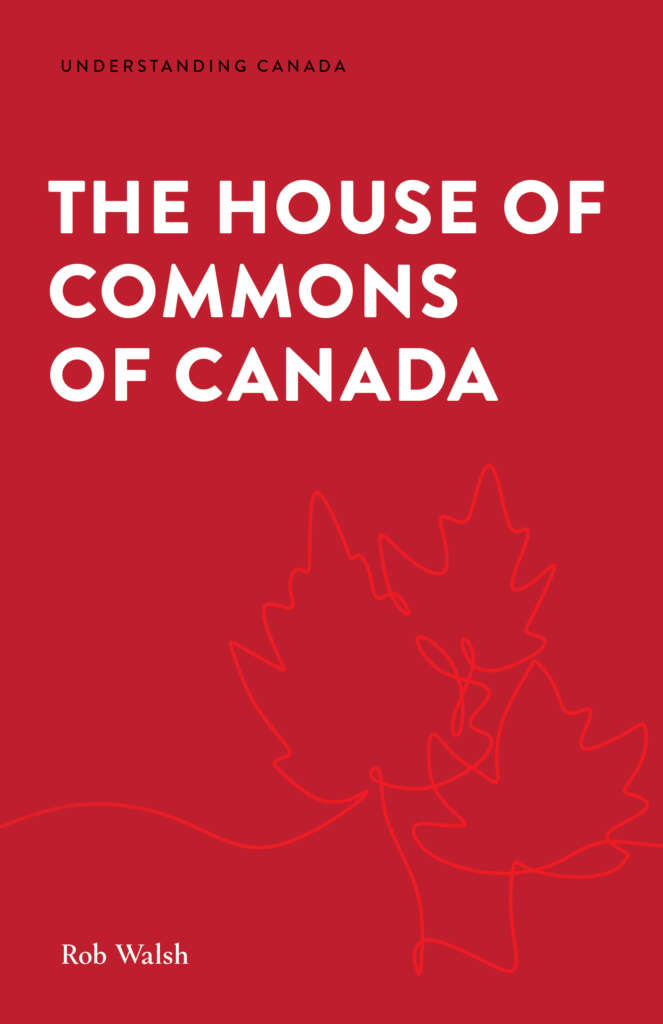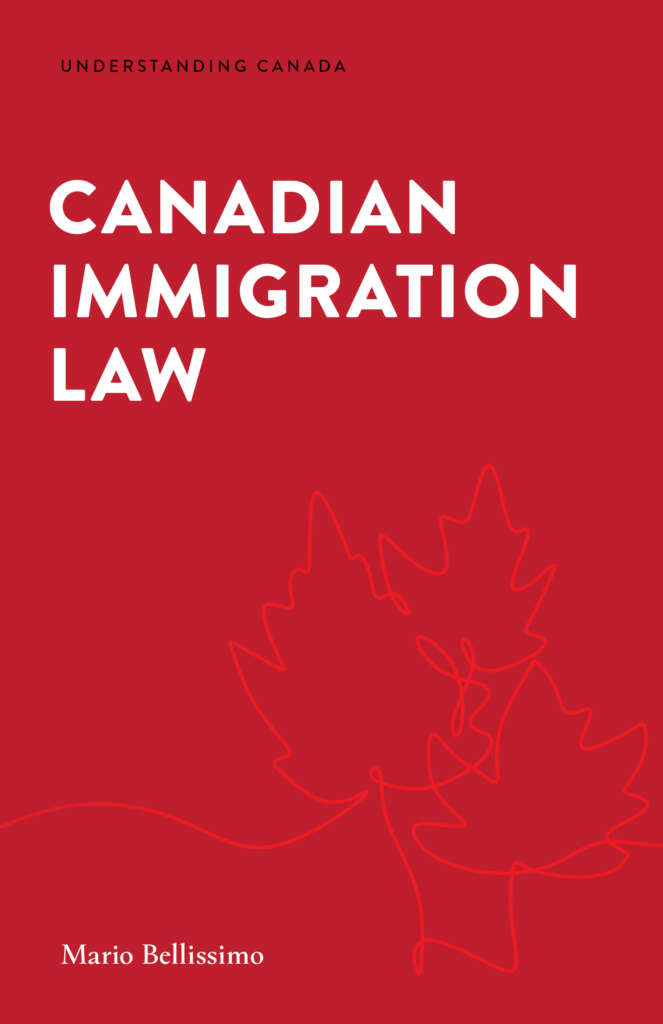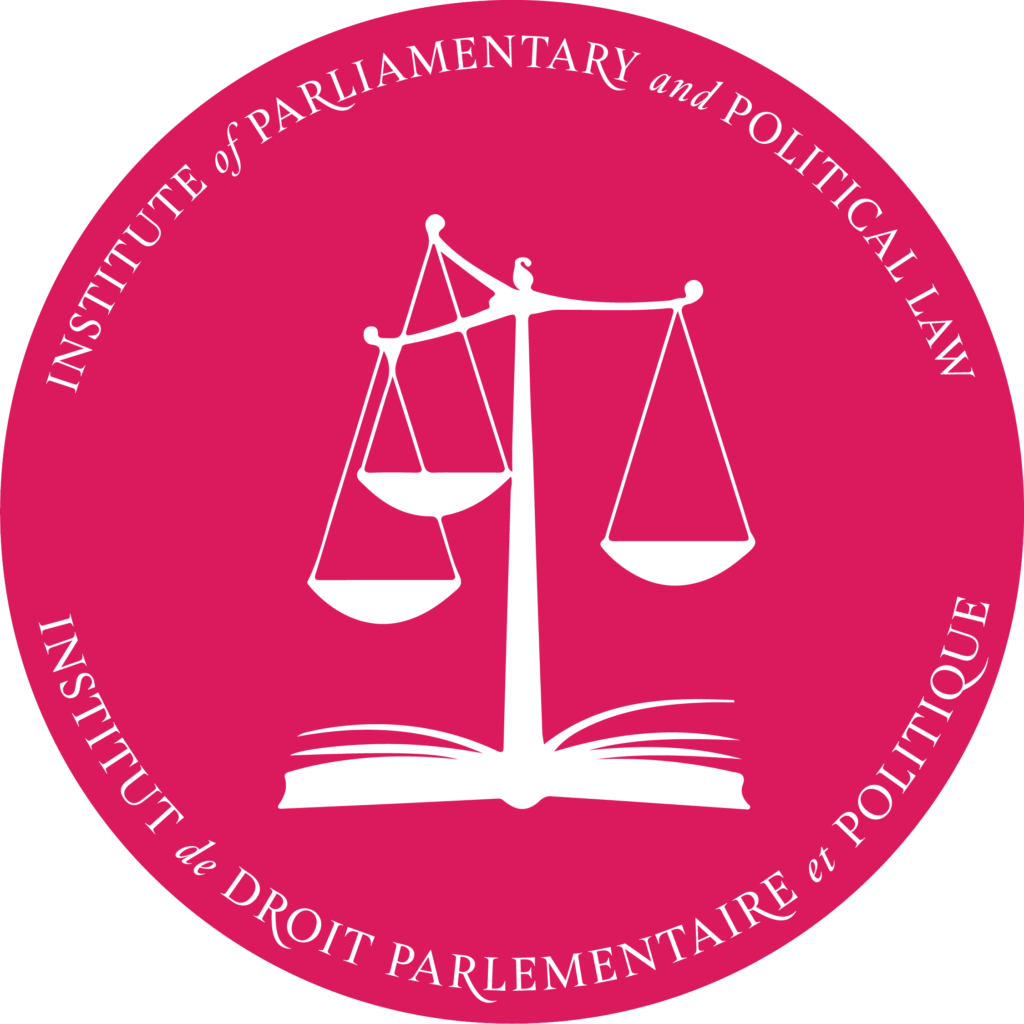
Introducing the Understanding Canada collection
In an era marked by profound political uncertainty, we believe that accurate information will help form the bedrock of a vibrant democracy. With this goal in mind, we are thrilled to announce a collaboration with the Institute of Parliamentary and Political Law and present the Understanding Canada collection.
This collection of smart and accessible titles is designed to provide a comprehensive understanding of Canada’s constitutional political and legal institutions.
Our mission is to ensure that every Canadian citizen has access to the essential information necessary to make informed decisions, participate meaningfully in the democratic process, and contribute to the collective progress of our nation. To achieve this vision, we have brought together some of Canada’s brightest political and academic minds who have authored each book in the series. The books offer invaluable insights and present complex topics in an accessible manner without compromising depth or accuracy.
These books are the perfect addition to school and public libraries, college and university classrooms, and the personal bookshelves of every Canadian. These books will be essential reading for every new Canadian looking for vital information on their newly adopted country, or those pursuing a career within Canadian political institutions.
The Understanding Canada collection includes:
- Political Law in Canada by Gregory Tardi
- Canada’s Parliament: A Primer by Steven Chaplin
- The Senate of Canada by Gary William O’Brien
- The Recognition of Two Official Languages in Canada by Hon. Michel Bastarache
- Drafting, Interpreting, and Applying Legislation by John Mark Keyes & Wendy Gordon
- Federalism in Canada: Evolving Constitutional, Political, and Social Realities by Kathy Brock & Geoffrey Hale
- The House of Commons of Canada by Rob Walsh
- Canadian Immigration Law by Mario Bellissimo
About the Institute of Parliamentary and Political Law
The Institute of Parliamentary and Political Law (IPPL) is a think-tank dedicated to the understanding and strengthening of democracy and democratic governing. Toward these ends, it engages in professional and educational activities aimed at interdisciplinary, comprehensive and comparative analysis of the democratic conduct of public affairs. The Institute is politically neutral, autonomous from any partisan political party, organization or interest and does not to engage in advocacy. L’Institut fonctionne de façon bilingue.
Political Law in Canada
By Gregory Tardi
Democracy implies the primacy of law over discretion and power. Several disciplines, in particular constitutional law and political science, offer traditional analyses of this reality. Political law is a new way of looking at the state and at statecraft. Gregory Tardi’s Political Law in Canada explains that this subject matter is an interdisciplinary combination of the elements of statecraft. This book proposes a new form of analysis, one necessary to a better understanding of the modern Democratic state. It recognizes that the allure of influence and power requires a constant struggle for legality to occupy its rightful role as the cornerstone of Democracy. To achieve this, political law first examines the entire body of instruments of governance — namely, the law of public institutions and administration, policy instruments, and political instruments. It compares and contrasts the impact of each, based on the binding nature of each type of instrument. Political Law in Canada adds to the understanding of public life by approaching the various instruments as the appropriate vehicles for Democratic governing, rather than merely as constraints on the use of power. It deals with elections; the legislative, executive, and judicial branches; and the accountability to law. The aim of political law is to offer to citizens greater understanding of the conduct of public affairs and of their role as knowledgeable participants in it.
About the Author
Gregory Tardi, BCL, LLB, DJur, is the general editor of the Understanding Canada Collection. He is a member of the Barreau du Québec and serves both as president of the Institute of Parliamentary and Political Law and as editor of the Journal of Parliamentary and Political Law. He has served as legal counsel with Elections Canada and at the House of Commons. He has taught at McGill, York and Queen’s universities and is the author of several books, including The Theory and Practice of Political Law and Anatomy of an Election.
Canada’s Parliament: A Primer
By Steven Chaplin
Parliament is at the centre of the Canadian system of democratic government and law-making. This primer traces the roots of Canada’s Parliament in the United Kingdom and shows how it has developed a distinct Canadian personality since Confederation. Canada’s Parliament: A Primer will provide students, citizens, and those in the process of becoming Canadians with a better understanding of how Parliament functions. Steven Chaplin approaches the topic with over fifteen years’ experience as a lawyer to the House of Commons, both advising the House and representing it in the courts. He grounds his study in the historical origins of the Canadian Parliament, and he discusses each of its constitutional components — the Commons, the Senate, and the monarch. The book reaches beyond mere description by showing how, armed with this knowledge, individuals, alone or through political parties, can engage in making Canada’s democratic institutions work well for the people of Canada.
About the Author
Steven Chaplin is a Fellow at the uOttawa Public Law Centre, and teaches Public Law, Constitutional Law, and the Law of Parliament at the Faculty of Law (Common Law), University of Ottawa. Formerly Senior Legal Counsel at the House of Commons, he is a Deputy Executive Editor of the Journal of Parliamentary and Political Law and has published numerous articles, book reviews, and book chapters, and maintains a blog at lexparl.com on the Law of Parliament.
The Senate of Canada
By Gary William O’Brien
The upper house of the Parliament of Canada plays a vital role in the political life of the country. The Senate reads, indeed on occasion amends, legislation enacted by the House of Commons. It originates studies into topics of currency in government and society. Through its focus on the regions of Canada, it balances the “representation by population” characteristic of the lower house. For all these reasons, any study of Canada that omits the Senate is necessarily incomplete. Gary O’Brien is uniquely placed to offer this study. He holds a PhD in political science from Carleton University, where his dissertation focused on the legislative and parliamentary practices of pre-Confederation Canada. As the twelfth clerk of the Senate for the years 2009–2015 and as a continuing Senate scholar, he is familiar with the history of the institution, with its function in Canadian parliamentary and political life, and with its functioning. This book is a reflection of his experience and expertise.
About the Author
Gary William O’Brien was born in Toronto in 1951. He holds a BA (Honours) degree from Glendon College, York University, and an MA and PhD from Carleton University, all in political science. He studied in Toulouse, France, from 1974–75 and started working in the Parliament of Canada in 1975. He was named Clerk of the Senate and Clerk of the Parliaments in 2009, retiring in February 2015. He has published articles in the Canadian Journal of Political Science, the Canadian Parliamentary Review, The Table, and Ontario History. He was President of the Canadian Study of Parliament in 1990 and 1991.
The Recognition of Two Official Languages in Canada
By Hon. Michel Bastarache
Official bilingualism comprises Canadians’ ability to deal with their own state authorities, and in matters of public life, in the official language of their choice. In The Recognition of Two Official Languages in Canada, former Supreme Court Justice Bastarache focuses on the evolution and the modern fabric of the bilingual state. The object of this book is to explain the nature of language rights and their importance in Canada’s constitutional history. It is intended to educate anyone with an interest in public policy, whether they are students, lawyers, or policy makers, and to inspire in readers a willingness to promote justice in language policies, however best they can. The first chapter presents a list of current language rights in Canada and explains some of the interpretative principles that must be used when analyzing these rights. The next three chapters examine the history of language rights as part of the history of Canada, starting with the pre-Confederation period, then the first few decades following Confederation, and, lastly, the period from the Bilingualism and Biculturalism Commission to today. The final chapter discusses language rights issues present in Canada today, from education to immigration, and looks at some proposed legislative reforms.
About the Author
Mr. Justice Bastarache, BA, LLL, LLB, DES, was called to the Bar in six provinces. He was a law professor and Dean at the University of Moncton Law School and Associate Dean, Common Law Section, at the University of Ottawa. He was appointed to the Court of Appeal of New Brunswick in 1995 and served on the Supreme Court of Canada in 1997 until 2008. He now practices law. Mr. Bastarache was a member of the Interim Constitutional Court of Kenya. He was Commissioner for the Reform of the Official Languages Act of New Brunswick and President of the Working Group on Academic Freedom at the University of Ottawa. He was also the Commissioner of La Commission d’enquête sur la nomination des juges au Québec. He was the independent conciliator for the indemnification of victims of sexual abuse for the dioceses of Bathurst and Moncton, as well as the independent conciliator for the indemnification of the female members of the RCMP victims of sexual harassment. Justice Bastarache is a member of the Administrative Tribunal of the Association of American States in Washington. He is editor and principal author of three books and has been awarded a dozen awards, including Companion of the Order of Canada and Officier de la Légion d’honneur of France.
Drafting, Interpreting, and Applying Legislation
By John Mark Keyes & Wendy Gordon
John Mark Keyes and Wendy Gordon have charted here a complete life cycle of legislation. Drafting, Interpreting, and Applying Legislation begins by discussing what legislation is and what it does, as well as the purposes for which it is used. This informative book then addresses the drafting of legislative texts and the processes for transforming them into law. It goes on to explain how legislation is found, understood, and applied, including the interpretive principles and techniques for resolving disputes about its meaning and application. Among the works dealing with the Canadian system of written laws, it is one of the most comprehensive in scope, encompassing both how legislation is made and how it is interpreted and applied.
About the Authors
Wendy Gordon holds a BA Hons in English literature from Western University and an LLB from Queen’s University. She was called to the Ontario Bar in 1987. Wendy was legislative counsel at the Department of Justice for nineteen years and at the House of Commons in the Office of the Law Clerk for ten years, culminating in the position of Deputy Law Clerk, Legislation Services. As legislative counsel, Wendy advised on complex federal statutes and regulations, drafted bills and amendments for Members of Parliament, and provided advice on diverse legislative matters falling under federal jurisdiction. Wendy developed and piloted plain language regulatory initiatives at the Department of Justice, developed and taught courses at the Canada School of Public Service, and has been a frequent guest lecturer at the law schools of McGill University and the University of Ottawa.
Wendy is a member of the Canadian Institute for the Administration of Justice and the Commonwealth Association of Legislative Counsel (CALC). Within CALC, Wendy held the position of regional representative for the Americas and is on the editorial board of The Loophole, the CALC journal about the preparation and enactment of legislation.
John Mark Keyes is a sessional professor at the Faculty of Law, University of Ottawa, and an instructor in the Legislative Drafting Program of Athabasca University. He has an LLB from the University of Toronto and a Diploma in Legislative Drafting and an LLM from the University of Ottawa.
Professor Keyes was previously legislative counsel in the Department of Justice (Canada) drafting regulations and government bills. He later occupied various managerial positions and was the Chief Legislative Counsel from 2005 until 2013. He has also written many academic articles and a monograph, Executive Legislation, the third edition of which was published by Lexis Nexis in 2021.
Federalism in Canada: Evolving Constitutional, Political, and Social Realities
By Kathy Brock & Geoffrey Hale
What does the concept of “federalism” mean and how does a federation differ from a unitary state? Professors Brock and Hale focus specifically on Canada as an example of a federal state and explain both the characteristics of Canadian federalism and the evolution of the practice of federalism in the decades since “Confederation.” Federalism is not exclusively a legal doctrine. It is a method for the conduct of public affairs that combines a constitutional-legal framework with flexible public administration methodologies. It is a method of governing that naturally incorporates practicality and mutual accommodation among layers of government. It is a vehicle of public life that generates its own controversies, difficulties, and, indeed, sometimes crises, all of which require resolution through that very methodology of federalism. Brock and Hale explore the most fundamental aspects of, and practices in, the Canadian form of federalism and go on to enlighten all readers about a variety of aspects of this form of government.
About the AuthorS
Dr. Kathy L. Brock is a professor, School of Policy Studies and Department of Political Studies (cross-appointed), Queen’s University. She has published and lectured extensively on Canadian and comparative politics, federalism and constitutional matters, state-nonprofit sector relations, Indigenous/Aboriginal governance and issues, and the relationship between the judiciary and executive.
Geoffrey Hale is professor emeritus of political science at the University of Lethbridge. He has published widely on the interaction of federalism and multiple policy fields including economic, fiscal, social, and regulatory policies; North American integration; the interaction of Canada’s domestic and international policies; business-government relations; and border management.
Coming Winter 2023

The House of Commons of Canada
By Rob Walsh

Canadian Immigration Law
By Mario Bellissimo

